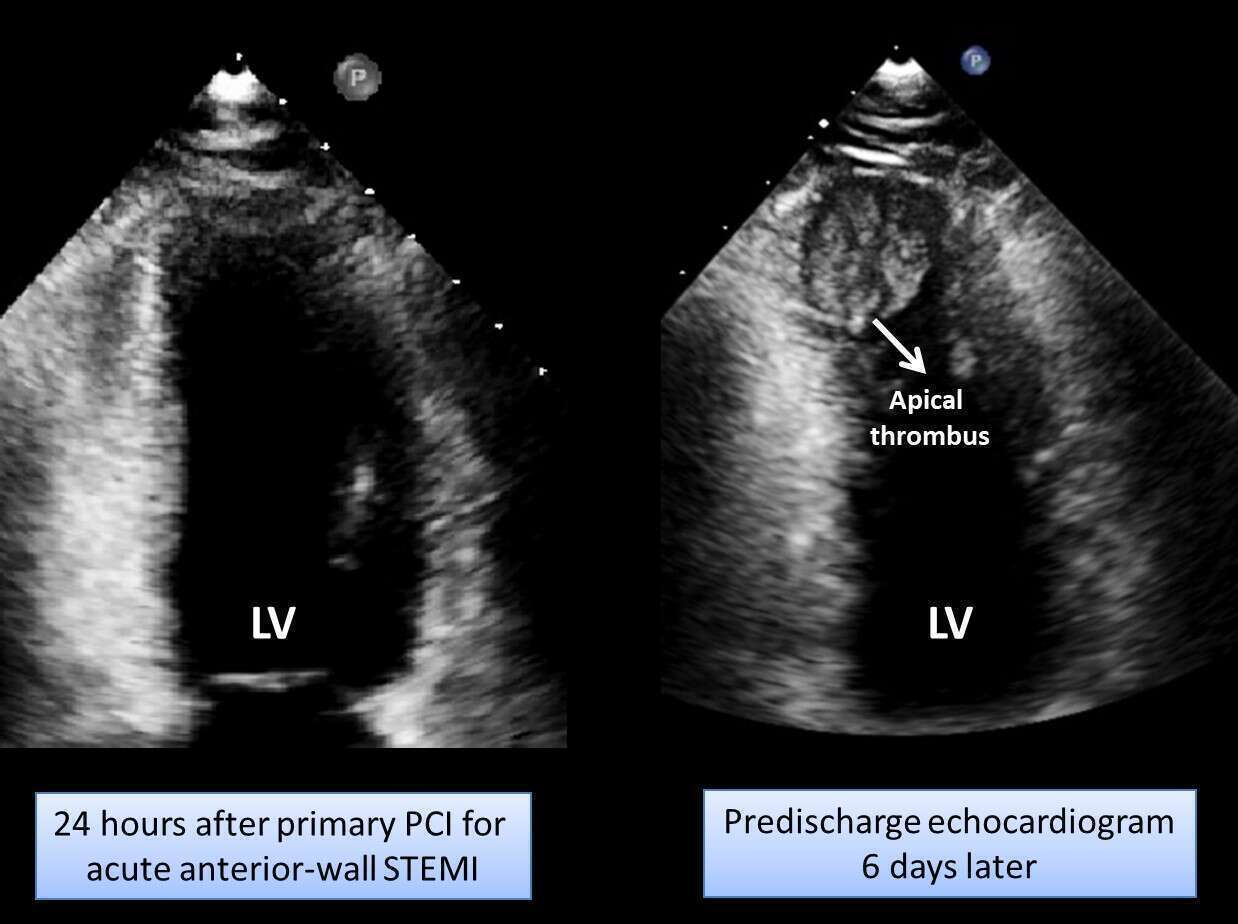
Left ventricular apical thrombus: the importance of repeat In-hospital echocardiography in patients presenting with anterior wall myocardial infarction
Background: Early left ventricular (LV) apical thrombus after an acute myocardial infarction (MI) is less common in the current revascularization era, as rapid reperfusion is often achieved. This may lead to low awareness with missed/late diagnosis of apical thrombus during acute cardiac care, which may cause serious complications if untreated.
Case series description: We describe 10 cases of patients presenting with acute MI in which LV apical thrombus was not evident in first echocardiogram performed up to 2 days from presentation, but was observed in a repeat exam carried-out at a median of 4 days later (IQR 2-6 days). Thrombus mean dimension was 2.1 cm. All cases were associated with anterior ST-segment elevation MI (STEMI) and occlusion of the mid/proximal left-anterior descending (LAD) coronary artery. Mean peak Troponin-T level was 9056±1844 ng/L and CPK 3063±1617 IU/L. Revascularization was performed by primary percutaneous coronary intervention with drug eluting stents implantation in all patients (TIMI-3 flow in 8 patients and TIMI-2 in 2). Mean LV ejection fraction was 36±7%. Regional wall-motion abnormality (RWMA) index was 1.9±0.2 (range 1.6-2.3) and all patients had ≥5 akinetic mid/apical segments. One patient died during hospitalization. Dual antiplatelet therapy plus anticoagulation was initiated, and the LV thrombus was dissolved during the first year post-MI in all discharged patients.
Diagnostic highlights: Repeat echocardiographic assessment for LV thrombus is warranted during hospitalization of patients with acute anterior STEMI that is accompanied by reduced ejection fraction, high RWMA index and severely elevated cardiac biomarkers, particularly when the initial study was performed less than 48 hours from admission.
Therapeutic dilemma: Management of LV apical thrombus in patients with acute MI is complex due to the required triple therapy and increased bleeding risk. the use of Novel Oral Anti-Coagulant`s (NOAC) compared to Vitamin K Antagonist (VKA) in this indication is debated.

Powered by Eventact EMS